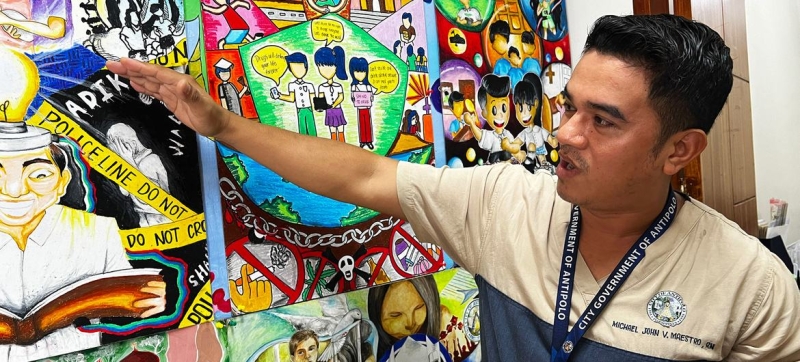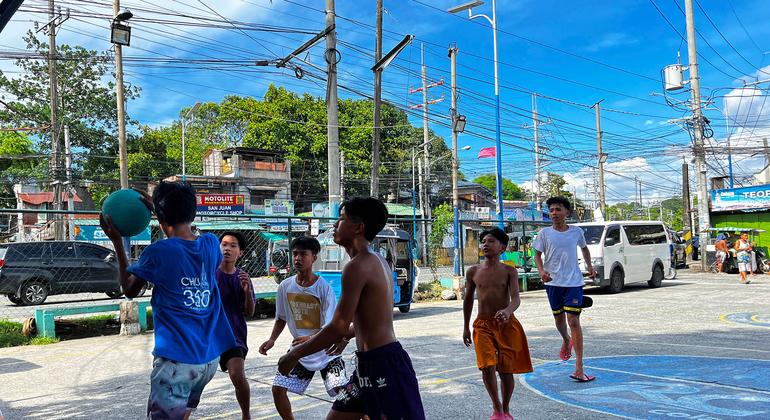
Michael John Maestro provides drug addiction prevention and treatment at a clinic supported by the United Nations Office on Drugs and Crime. From Fear to Hope: The Philippines after the “War on Drugs” Human rights
Thousands of people across Southeast Asia have been killed during the so-called war on drugs that the Philippine authorities declared some time ago. Now a more humane approach is being taken at the local level: people who use drugs in the Philippines are no longer treated as criminals, but as patients in need of medical attention.
UN News Service’s Daniel Dickinson traveled to Antipolo City, near the capital Manila, to meet with Michael John Maestro, a nurse working in drug prevention and treatment at a clinic supported by the United Nations Office on Drugs and Crime (UNODC).
“At the beginning of the year, a young man I’ll call Carlo was sent to our office. He was a methamphetamine abuser,” Michael recalls. – Carlo showed symptoms of schizophrenia, which were caused by the chemical effects of methamphetamine. He had psychotic episodes and threatened his mother. Once he tried to strangle a child. In the end, the family decided to protect him and the people around him and put him under lock and key for a long time, locking him in a small room. He had only his dog for company. Six weeks ago he was prescribed antipsychotic medication and since then he has changed in incredible ways. He no longer has seizures, his mood is more positive, he can move around his neighborhood independently and even play basketball with other young people.”

Crime and Punishment
“During the war on drugs, Carlo could have been persecuted, imprisoned and possibly even killed. People who used drugs were considered evil and a threat to society, Michael continues. “It was clear to me that Carlo needed compassion and understanding, not punishment. He is a normal person, he just has special medical needs. Drug addiction is a chronic disease that requires treatment, and that is the approach now being taken here in Antipolo and by health authorities throughout the country.
Changing drug policies have led to to the fact that more and more people are seeking treatment at the Antipolo City Anti-Drug Abuse Unit. Last year, 30 people voluntarily came to our office, and in the first five months of 2024 we have already seen 36 patients.”
Fighting stigma
“By being respectful and compassionate, we can help reduce the stigma that still exists against people who use drugs,” says Michael. – It takes time for noticeable changes to occur. I use a set of questionnaires developed by UNODC to identify patients’ needs and develop a treatment plan. Based on the information collected, we can refer the patient to the appropriate medical facility for treatment and support. If the results of this work are effective, we can expand this approach to other municipalities in the Philippines. I am very passionate about my work. The love and compassion I feel for the people who enter my office and the positive changes in their lives that my work contributes gives me the motivation to keep going.”
